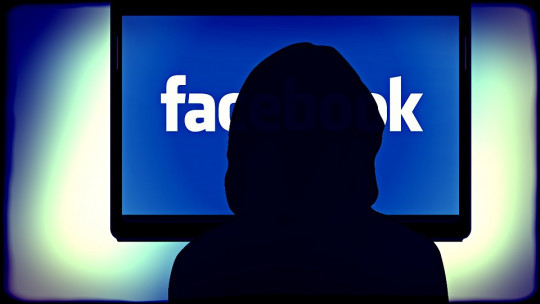There are people who do not post anything on social networks for privacy and security or because they are concerned about their personal image. Because it can cause a feeling of disconnection from society, most of the population consumes social networks daily. Even so, some people have stayed away from them, as well as others, despite having profiles created on social networks, do not publish any content on them.
In this PsychologyFor article we will talk about Why are there people who do not publish anything on social networks and its consequences Discover the effects of this way of acting, and it is better not to post at all or post a lot on social networks.
Why are there people who don’t publish anything on social networks?
There are people who decide to consume social networks but not publish any personal content. These people use social networks as entertainment, just like just a few years ago we were browsing different magazines. In these cases, there are various reasons why they choose not to publish anything on social networks. We see them below:
- Privacy: Some people decide not to publish any personal content on these networks because they consider that they expose their privacy publicly and unnecessarily. They prefer to share intimate moments or details of their lives only with close friends and family rather than publicly on online platforms.
- Concerns about personal image: There are those who are aware of the risks associated with an online presence, such as the risk of being judged, harassed or misunderstood. They choose not to expose themselves to these risks and prefer to maintain a low profile on social networks as a means of job promotion and as a means of disseminating a certain type of ideology or way of thinking.
- Time and priorities: Posting and maintaining an active social media presence takes time and energy. People who don’t post anything on social media choose to prioritize other activities and relationships in their lives and decide not to invest too much time on social media.
- Impact on mental health: Excessive use of social media can have a negative impact on mental health, contributing to feelings of anxiety, depression or low self-esteem. To protect their emotional well-being, there are people who choose not to actively participate in social networks. In this article, we show you how social networks affect people’s mental health.
- Distrust of social media platforms: People who do not post anything on social media worry about their privacy and security, as well as data manipulation and the proliferation of fake news. They act cautiously to prevent possible potential dangers that may arise from exaggerated exposure of their own life, such as theft, harassment, cyberbullying, cybersex, dependency, etc. For these cases, in this article we talk about How to prevent cyberbullying.
- Different values: There are also people who don’t post anything on social media because they don’t like it. They decide not to create any profiles on them or, better yet, they have stopped using them after verifying the potential dangers that improper use of these networks can cause to people. Also, they are people whose values emphasize social contact over the excessive use of screens, real life over virtual life.
What happens to people who don’t post anything on social media?
The consequences that arise from not publishing any content on social networks can be classified into two depending on the perspective adopted:
- Reduced exposure and visibility online: If we start from the current validity of the use of these social media and prioritize this use as a significant part of our lives, people who do not publish anything on social networks become less relevant. Thus, in this context, the importance of people is determined based on their presence on digital platforms and their number of followers.
- Greater connection with life: If we start from an approach according to which real life is found in the world, in which networks are only entertainment and not a means to establish human relationships, the consequences of a person not publishing anything are a greater connection with life, be more realistic, create and maintain more real and authentic relationships.
- Privacy Preservation – By refraining from posting on social media, you can maintain greater control over your privacy and personal data. Avoiding exposing details of your private life publicly reduces the risk of being the target of cyberbullying, identity theft, or other online threats.

Is it better not to post at all or to post a lot on social media?
In exposing the dichotomy between posting a lot of content on social media and refraining from doing so altogether, we must keep in mind that, while technology provides us with numerous useful tools, it can also usurp our time and life by encouraging constant comparison with others.
Excessive posting can expose us to risks such as cyberbullying and loss of privacy, especially for young people who adopt these platforms without full awareness. It is crucial to educate children about these dangers and set limits to encourage responsible use of technology.
Furthermore, the option of not participating in social networks remains a sensible alternative to preserve control of time and avoid addiction, but regardless of the choice, it is essential to act prudently to prevent technologies from dominating our lives. In this article we analyze Addiction to social networks: causes, consequences and solutions.
Publishing ideological or professional content or not publishing anything allows you to participate in social networks without publicly exposing your own life. Even so, choose Not participating in social networks is still a sensible option to maintain conscious control of time, considering the high time consumption associated with these platforms. It is essential to act sensibly, regardless of the choice, to prevent new technologies from dominating our lives.
This article is merely informative, at PsychologyFor we do not have the power to make a diagnosis or recommend a treatment. We invite you to go to a psychologist to treat your particular case.
If you want to read more articles similar to Why there are people who do not publish anything on social networks and its consequences we recommend that you enter our Social Psychology category.
Bibliography
- Davara Fdz. de Marcos, L. (2021). The definitive book on social networks: Keys for parents and educators. Pedagogy Notebooks.








